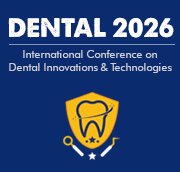Title : The management of Mucogingival conditions (Gingival recession)
Abstract:
According to Cortellini & Bissada (2018) gingival recession is defined as an apical shift of the gingival margin with respect to the cemento-enamel junction (CEJ), with associated clinical attachment loss (CAL) and exposure of the root surface to the oral environment. There are several clinical outcomes associated with gingival recession, e.g., 1) Aesthetics, 2) Pain e.g., Dentine hypersensitivity or root sensitivity, 3) Periodontal concerns such as plaque retention and inflammation, and 4) Root caries and non-carious cervical lesions (NCCL). Dentine hypersensitivity (DH) is usually one of the main symptoms of gingival recession that may encourage patients to seek advice from a dental professional. The role of gingival recession in Dentine hypersensitivity should, however, be considered as a predisposing factor rather than the primary cause of the problem. Several classifications such as the Miller classification (I-IV) have been used by clinicians to facilitate both a diagnosis and a template for a therapeutic strategy for predicting clinical outcomes (e.g., successful root coverage), however more recently the classification (RT1 - RT3) described by Cairo et al. (2011) has been recommended in the World Workshop in Periodontal and Peri-implant diseases and conditions (2017). The management of gingival recession and any associated sequelae, such as dentine hypersensitivity, caries, NCCL, or aesthetics, may therefore be based on either a non-surgical or surgical approach depending on the extent and severity of the problem. Examples of non-surgical and surgical approaches and procedures in treating gingival recession will be addressed in this presentation. The importance of subsequent preventive measures, including the removal or modification of any predisposing factors, together with monitoring the condition over time preventing any further deterioration of the problem is, however an essential component of managing the problem.



